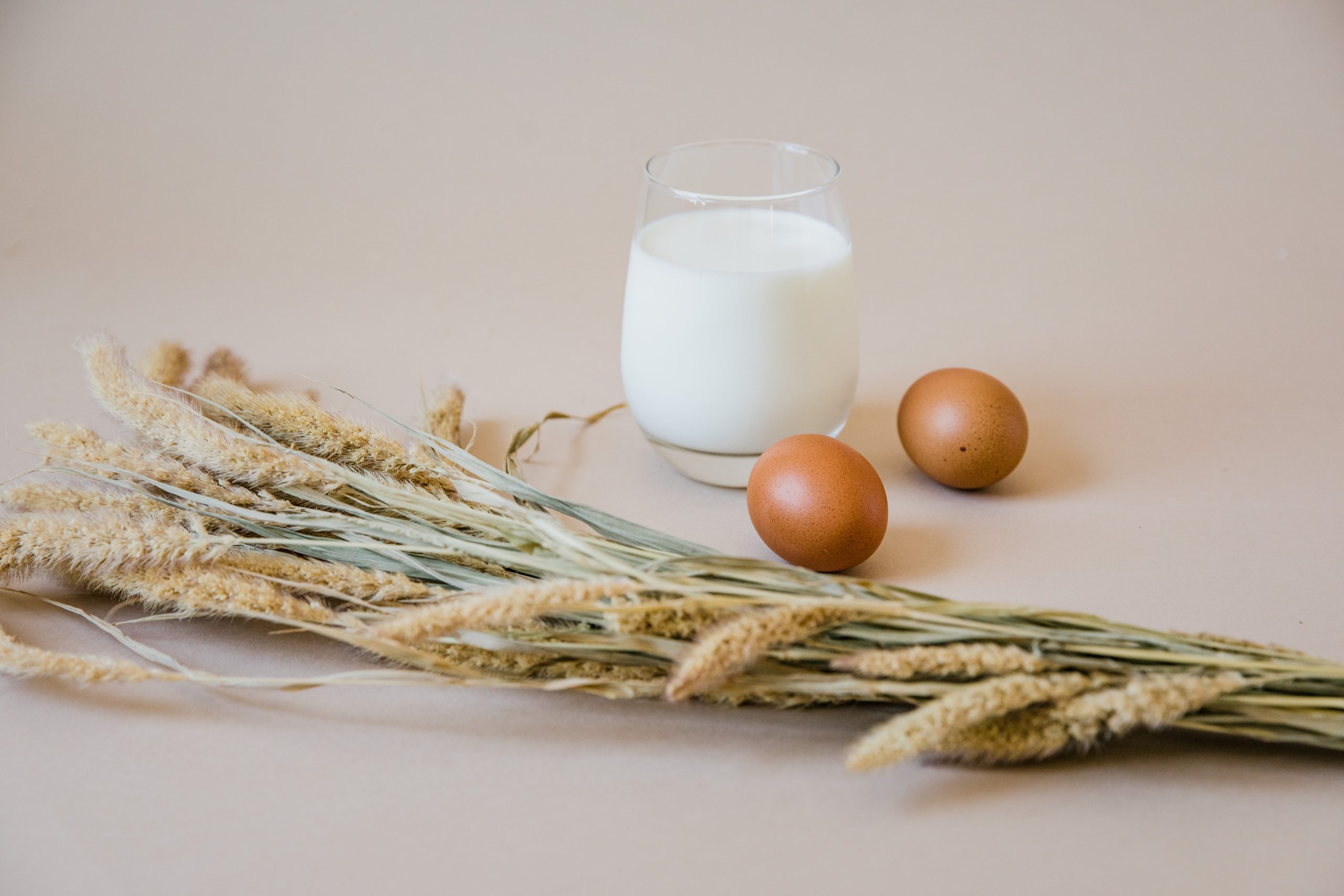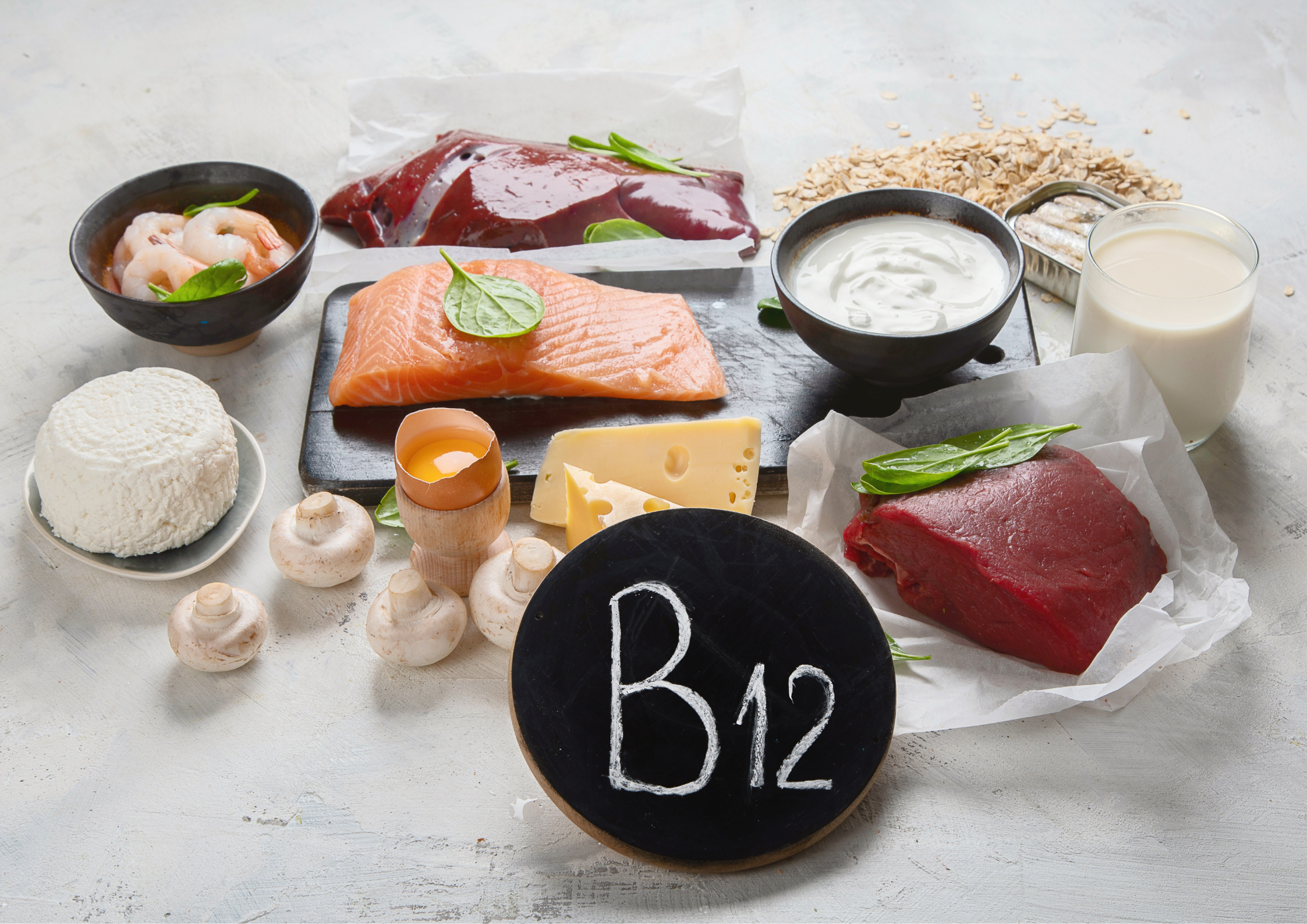To B12 or not to B12, that is the question.
Written by
Jonathan Steedman
B12 (or cobalamin, as the people who always sat in the front row of class call it) is an essential vitamin that is involved in a number of critical functions in the human body.
It’s pretty much exclusively found in animal products or fortified cereals, so for people following a vegan or vegetarian diet, it is something that is important to account for.
Before I go on, this article ended up getting a little bit nerdier than I had planned so, here’s the good stuff:
If you’re a meat eater and you’re not suffering from any kind of malabsorptive disorders (if you were, you’d know), you’re all set. No need to supplement.
If you’re a vegetarian who regularly eats dairy and/or eggs, rest easy.
If you’re a vegan, and you take 10mcg (micrograms) of cyanocobalamin a day or 2000mcg two times a week, you’re covered.
And if you don’t fit into any of those groups… find your favourite and join now.

01
Where can I find it?
Like I mentioned above, B12 is pretty much exclusively found in animal products, as animals mostly get it from soil during grazing, or from the gut bacteria sequestered in their multiple stomachs. As we generally don’t eat soil or have multiple stomachs, we have to get it from the animal products themselves.
It can also be found in fortified cereals and some plant milks, but it can be pretty tricky to get enough if you’re solely relying on these. Aim for 3mcg per day, making sure to check the level displayed on the product’s nutrition label as these amounts can change from product to product.
As a side note, if an algae or fermented soy (think tofu or tempeh) product advertises that it is “naturally high in B12”, it isn’t. They contain analogues of B12, which are compounds that are very similar, but don’t perform the same role in the body. The more you know.
Once consumed, B12 begins a pretty fun journey down your gastrointestinal tract. Stomach acid and certain enzymes release B12 from the protein it is bound to in your food, before this free B12 is picked up by R protein (a protein that originates in your salivary glands). R protein looks after B12 for a while, protecting it on its journey until it’s attacked by enzymes in your small intestine, freeing the B12, only so it can be picked up AGAIN by something called Intrinsic Factor. It’s then absorbed in your ileum (the end of your small intestine), thrown into your blood where it circulates until it’s picked up and looked after by your liver, until you need it. Phew!
02
Yeah but why do I even need it?
Without it, you will die.
Ok, now I have your attention, here’s the scoop. Goggles on everyone.
B12 plays a big role in some very important enzymatic reactions. In the first of these reactions, B12 assists in the conversion of homocysteine to methionine, which is great news for two reasons: excess homocysteine is linked to an increased risk of cardiovascular and renal disease, and methionine then carries on and is converted to S-adenosyl-methionine (SAM). SAM is used for DNA and RNA regulation, myelin (the stuff surrounding your nerves) regulation, and the synthesis of many other biochemical compounds. SAM is important. Enough B12 to do its job means enough SAM to do ITS job. We all win.
The other side of the reaction resynthesizes the coenzyme tetrahydrofolate (how fun are these names), which plays an important role in the resynthesis of nucleic acids AKA the stuff in DNA and RNA. Please see the crystal-clear diagram below.
It’s also involved in the metabolism of certain fatty acids, allowing them to be oxidised in the citric acid cycle to provide energy.
03
I don’t believe you; I’m just going to keep doing my own thing
You know what? If you’ve recently swapped from a diet that involved animal products to one that doesn’t, you’ll probably be fine for a while. Your liver can actually store up to a few years’ worth of B12, so it may take a while for a deficiency to arise.
But if that deficiency does occur, you’re at risk of things like nerve degeneration, cognitive decline, disturbances in vision and macrocytic anaemia. Probably not worth the risk…
So there you have it! My article that started off accusing people of being nerds and ended up talking about the synthesis of S-adenosyl-methionine. Whoops.

Thanks for reading! Why not subscribe to our mailing list for more great content.

